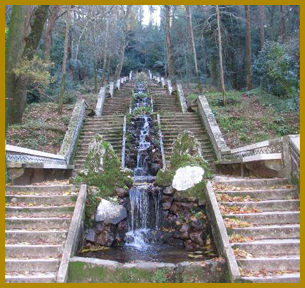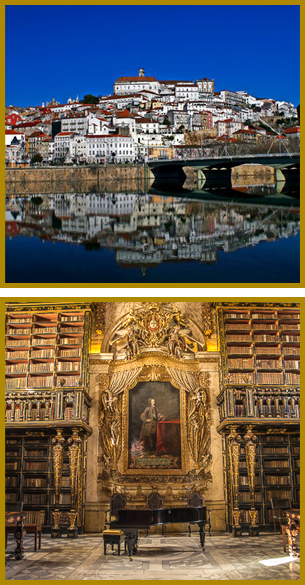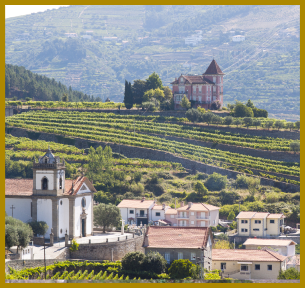Our Adventures
LOCAL HISTORY AND CULTURE
While every evening will be devoted to banquets, concerts and shows, the countryside around us is filled with art, architecture, history and culture. Each day we will divide into smaller groups to go exploring. Bussaco sits atop a hill and at its base are hot springs where the Romans built a spa. These healthful waters still flow today and the charming town of Luso contains spas both ancient and modern. There is a little concert hall from the 19th century and we'll use it to recreate the elegance of bygone days. We'll take a day to explore the national forest that surrounds Bussaco. The Benedictine monks spent hundreds of years building water works, hermit's retreats and grottos along lovely nature walks through the woods. There's even a battle site where Wellington defeated Napoleon in an early rehearsal for Waterloo. After his victory, Wellington stayed in the convent (the future site of the palace) before resuming his battles.


PORT WINE AND THE LOCAL CUISINE
This area is deeply immersed in the culture of food and wine. We will take a day to visit the local vineyards and cellars. Obviously, the port wines are world famous, but we were also very impressed by the big local reds that compare favorably with the Rosso wines of next-door Spain. We are not far from the Atlantic coast and there is a great variety of local fish dishes prepared with the fresh local produce that will delight your taste buds. We also learned that Portugal's squid and octopus are considered the best in the world.
COIMBRA AND ITS UNIVERSITY
Coimbra was the seat of power for the Romans in what would later become Portugal. Remnants of the aqueducts, walls and baths still stand today. In the 500s, the Visigoth barbarians conquered this part of the Roman world and 200 years later, the Moslems, who conquered most of the Iberian Peninsula, replaced the Visigoths. The Moors were expelled in 1064 and Coimbra became the capital of Portugal. The university was founded in 1260 and is one of the five oldest continuously operating universities in Europe. Even after the Portuguese Court was moved to Lisbon, Coimbra remained the intellectual and artistic capital of Portugal. We'll visit the library, one of the most beautiful in the world. We'll have an organ concert on the great Baroque organ in the magnificent university chapel and we'll take lunch in the gardens of medieval kings.
